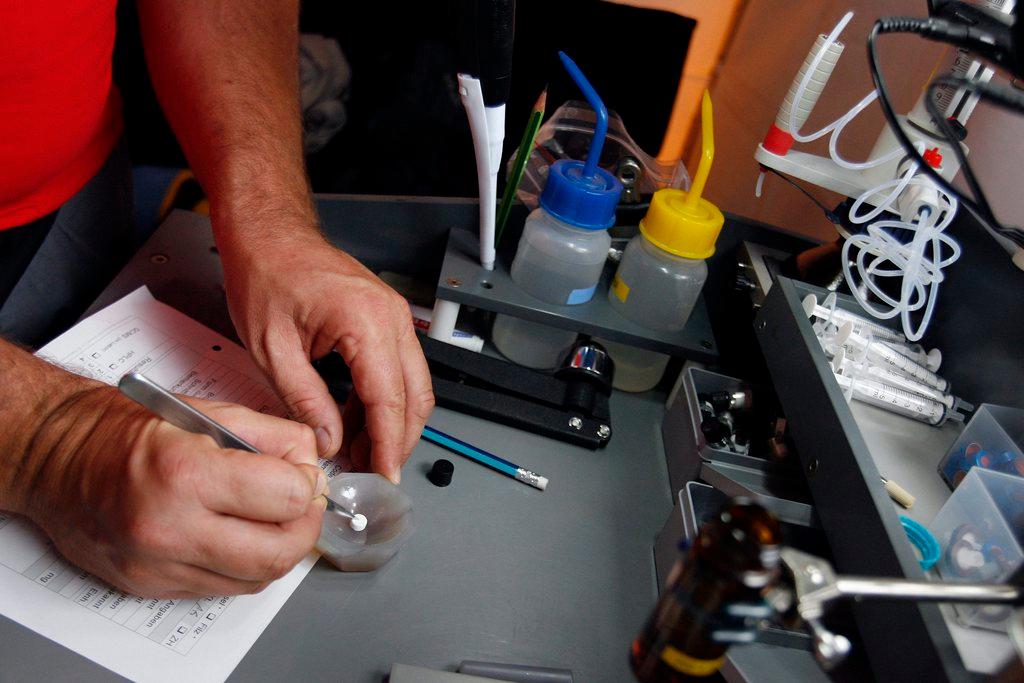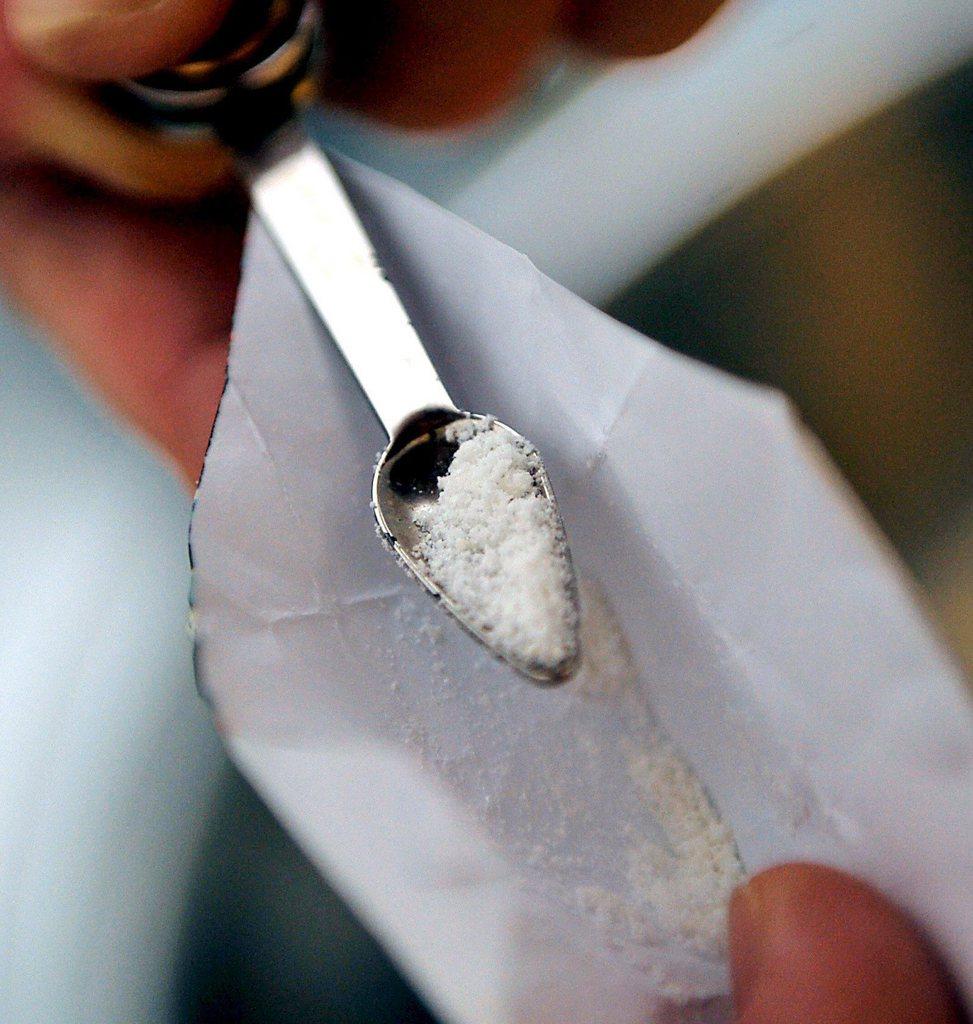Street Parade’s on-site drug testing aims to save lives

Dozens of ecstasy pills could well be among the dozens of illegal drugs tested for quality at this Saturday’s Zurich Street Parade, which pulls in around one million techno fans every year.
This Saturday – and every Street ParadeExternal link since 2001 – half a dozen Streetwork ZurichExternal link advisors are setting up an information stand and mobile drug testing laboratory near the lakeside parade (from 1am-6pm at Bürkliplatz square and at 10pm-6am outside the Roten Fabrik club) to inform people about the possible side effects of illegal drugs.
There, specialists carry out free, anonymous 30-minute drug tests, and hand out information, water, ear plugs and condoms. Clubbers are advised to regularly consume water and other non-alcoholic beverages, and to avoid mixing drugs and alcohol. Every year 150-300 people seek advice and 15,000 flyers are distributed.
Streetwork’s drug advisory service, funded by Zurich city authorities, is part Switzerland’s so-called “four pillar” approach of prevention, therapy, harm reduction and law enforcement for all drugs. Similar pill testing services exist in Bern, Basel and Geneva.
Volunteers counsel partygoers against consuming illegal drugs. But they also stress it is important to explain the risks to those people who decide to take them.

“We are not judgemental. We are neutral. We contribute towards reducing the risks,” said Streetwork director Christian Kobel.
“The service is always well appreciated by young visitors. They see it as a way of breaking certain taboos and being able to speak freely to experts about drug issues. But some people who visit the stand from countries like Italy or Germany can hardly believe it.”
The Streetwork director believes only ‘a small proportion’ of people – around 5% of participants at the parade take illegal drugs. But this could still represent up to 50,000 people.
Serious drug-related accidents are rare during the techno festival, especially as people are better informed than in the past. “The biggest problems are linked to alcohol consumption,” he said.
But the huge crowds, high August temperatures and illegal drugs can be a dangerous mix, especially for youngsters who decide to take them for the first time.
And recent trends do not help. Kobel and his team have seen an increase in the number of super-strength ecstasy pills, which can contain up to 300 milligrams of the active ingredient MDMA. High doses of MDMA can have side-effects such as eye and nerve spasms, seizures, hallucinations, and increase the risks of depression, loss of concentration, sleep and appetite. People who regularly take large amounts of MDMA also have an increased risk of brain damage.
“In 2016, over 30% of ecstasy pills tested had a too high dosage,” said Kobel. This phenomenon was unheard of five years ago. It is thought that the basic ingredients to make pills have since become much cheaper. At the same time, competition has increased between illegal drug producers, especially those based in the Netherlands and Belgium, who have become more professional.
Streetwork says cocaine cut with high concentrations of other substances, such as levamisole, a drug used to treat worms in cattle found in 48% of all samples tested last year, is also problematic. Long-term users risk weakening their immune system and damaging cells and tissue.
Overall, Kobel described the levels of cocaine, amphetamine and ecstasy use during recent Street Parades as ‘relatively stable’.
The first Street Parade in 1992 attracted 1,500 people. Last year’s Street Parade attracted 900,000 people; in 2015 there were one million.


In compliance with the JTI standards
More: SWI swissinfo.ch certified by the Journalism Trust Initiative












You can find an overview of ongoing debates with our journalists here . Please join us!
If you want to start a conversation about a topic raised in this article or want to report factual errors, email us at english@swissinfo.ch.